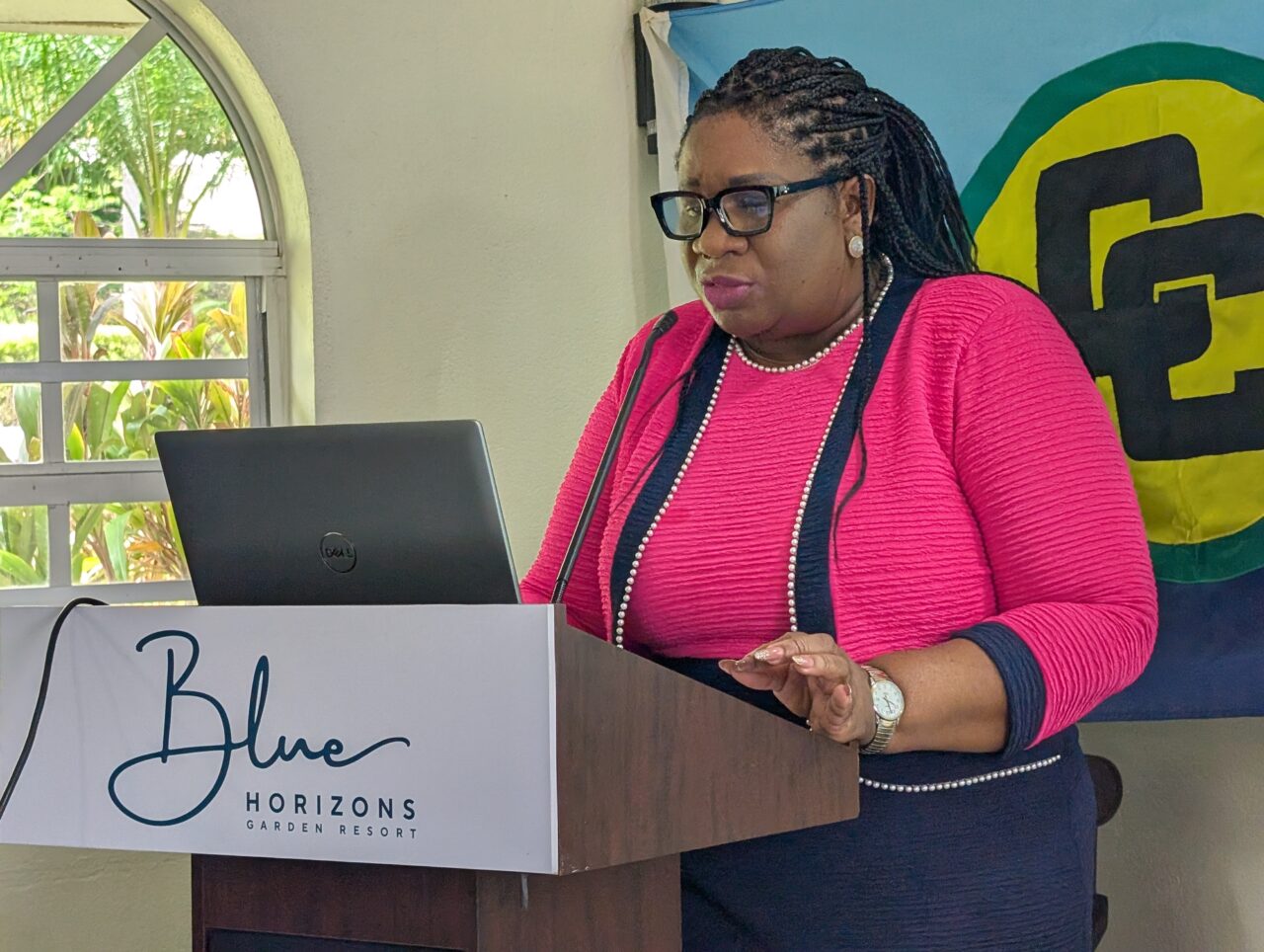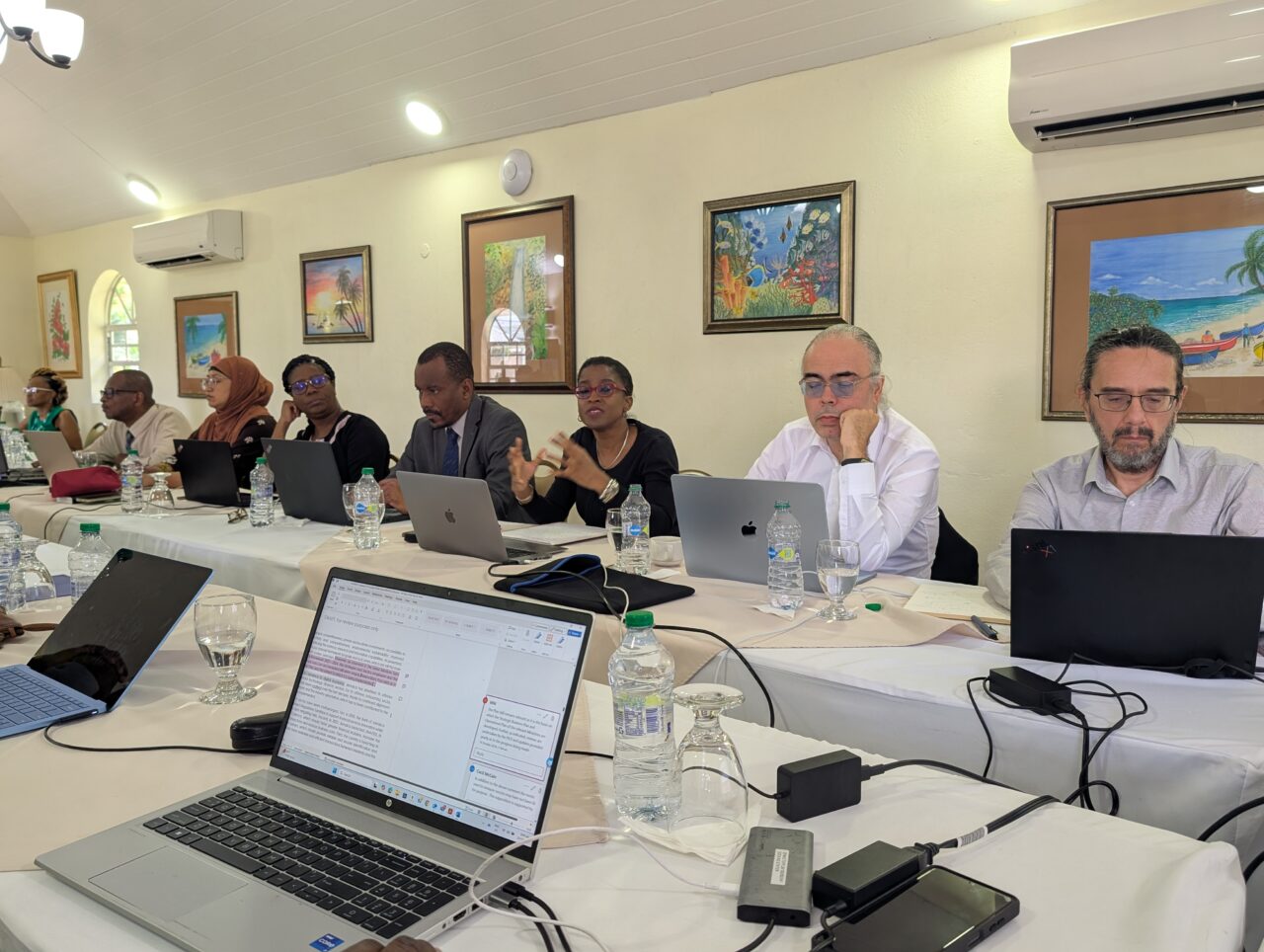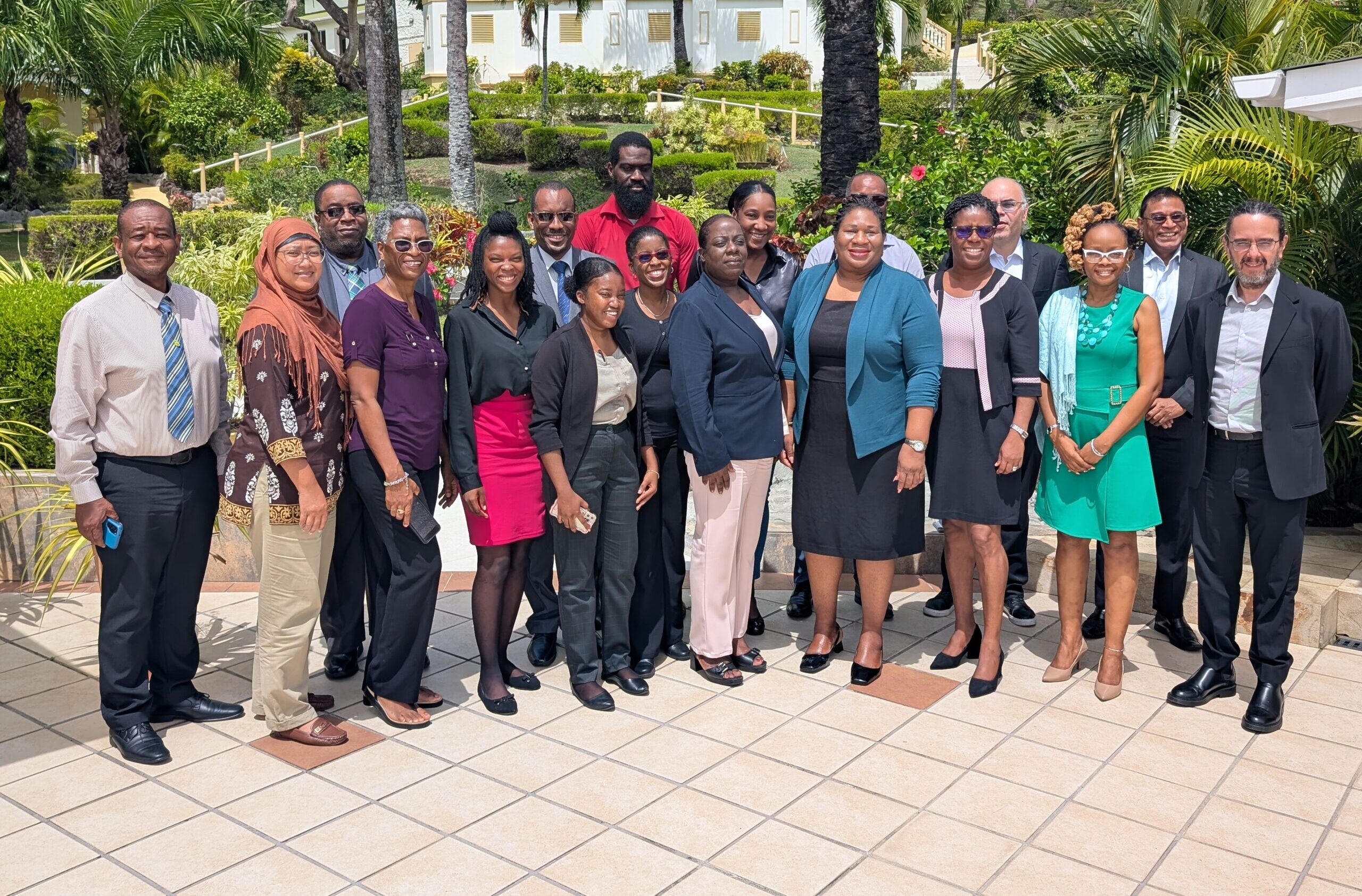Careful validation, collaboration, and ethical considerations are pivotal to shaping digital development and confronting the challenges of rapid technological change.
CARICOM Secretariat’s Programme Manager, Information and Communication Technology for Development (ICT4D), Ms. Jennifer Britton, shared this perspective when she delivered remarks at a technical validation workshop for the regional ICT Sector Gap Analysis Project that was conducted with support from the 11th European development Fund (EDF). Workshop participants included representatives of Member States and two regional organisations that are members of the Regional ICT Cluster of agencies – the Caribbean Telecommunications Union (CTU) and the Caribbean Broadcasting Union (CTU).
The project’s main objective was to assess the state of the ICT sector in each CARICOM Member State and to use the findings to inform a digital agenda and a cooperation framework. It allows the Region to begin to gauge its digital maturity, opportunities and challenges in a post-COVID era. Twenty ICT country profiles, a Digital Agenda 2037, a draft Cooperation Framework, and a Compass and ICT Maturity index were outputs of the project.

Ms. Britton said: “We are witnessing rapid advancements that are reshaping how societies, economies, and institutions operate. From the wide spread of artificial intelligence and machine learning to the expansion of cloud computing and blockchain technology, digital innovations are driving unprecedented opportunities for inclusion, efficiency, and sustainable growth. This rapid evolution also brings challenges—cybersecurity threats, data privacy concerns, and digital divides—that require careful validation, collaboration, and ethical considerations.”
She said it is vital for the Region’s collective efforts to focus on ensuring that digital development in CARICOM Member States remains purposeful, equitable, and aligned with shared goals for a more connected and resilient future.
“It is also important that we assess our ability to contribute with new data to the ongoing global processes related to digital development,” she advised, pointing out that ICT practitioners can influence the course of digital transformation in CARICOM, fostering innovations that are not only technologically advanced, but also socially responsible.
CARICOM’s digital development is grounded in the development of a Single ICT Space which Heads of Government approved in 2017. Among the components of the Single ICT space development are bringing technology to the people; encouraging entrepreneurial activity; strengthening cyber security; and mobilising resources for investments in ICT.
One of the first activities identified for implementation in the CARICOM Single ICT space was an ICT Sector Audit which was completed on 31 May.







